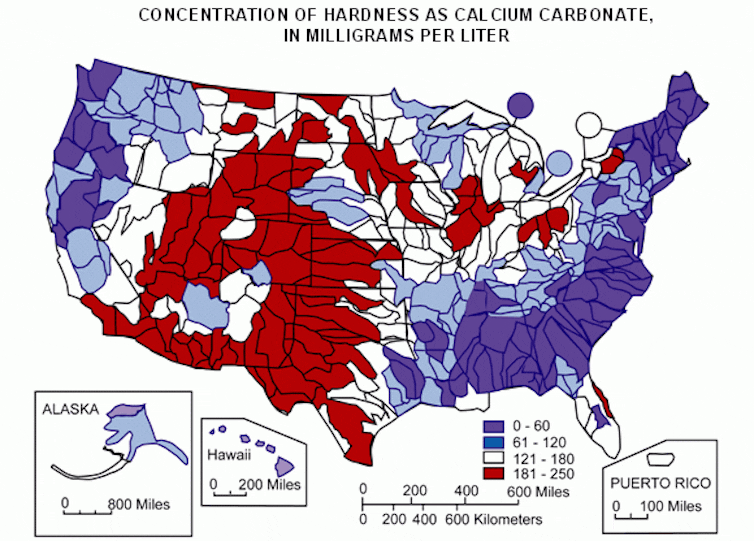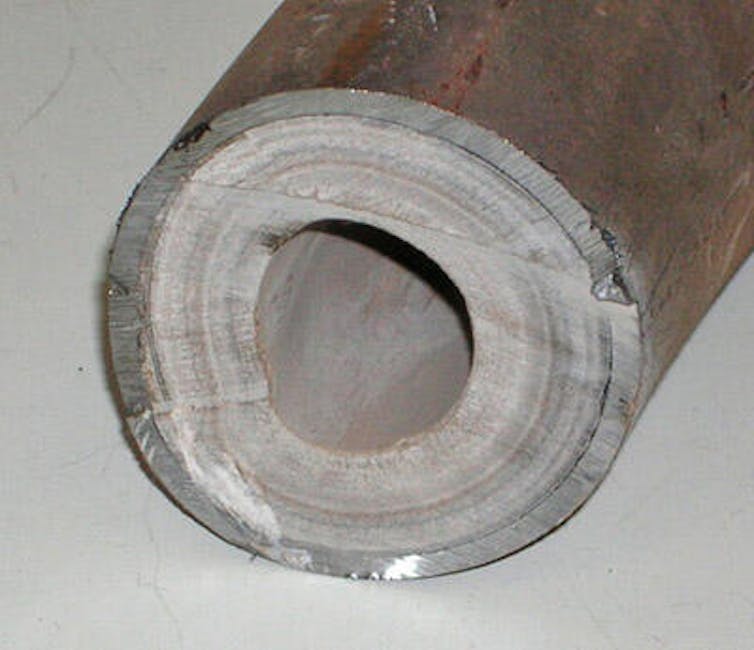When you turn on your faucet to get a glass of water or wash your face, you’re probably not thinking about what’s in your water – besides water. Depending on where you live and whether you have a water-softening system, your water might contain dissolved minerals such as calcium and magnesium. And these minerals can play a role in whether certain pollutants such as lead stay out of your water.
The more dissolved minerals, the “harder” your water. But is hard water actually good or bad for you?
As engineering researchers who study water quality, we have seen the effects – both good and bad – that soft and hard water can have on everything from plumbing systems to the human body.
What is hard water?
Hard water is water that contains dissolved minerals such as calcium, magnesium, iron and manganese. Soft water contains lower concentrations of these minerals.
Hardness is measured in terms of calcium carbonate, CaCO₃, which is used as a reference point for comparing different minerals.
The amount of these minerals in a city’s water supply varies by region. It depends on both where the water is coming from and how the water is treated.
Communities that source their water from wells rather than surface water such as lakes, streams, rivers and reservoirs often start with hard water pretreatment. As groundwater moves through the soil to a well, it picks up minerals. At the same time, areas where the types of rock and sediment are more prone to dissolving in water may have harder water.

Streamflow water hardness across the U.S., where purple and blue indicate softer water and white and red indicate harder water. This map was updated in 2005 by the U.S. EPA.
U.S. Geological Survey
Effects on water lines and distribution
Water that’s too hard or too soft could damage pipes and lead to health and aesthetic concerns.
Since hard water has a higher mineral concentration, minerals can build up in pipes, which leads to clogged pipes in homes and public water systems. Hardness also creates more deposits at higher temperatures, so hot water heaters are prone to mineral buildup. In areas with hard water, water heaters have a shorter life span.

A pipe that has a thick layer of mineral deposits inside of it.
Mevedech/Wikimedia Commons
But hard water can help, too. While minerals from hard water can clog pipes, a thin layer of mineral deposition in water lines can protect you from ingesting toxins that could seep in from the pipe itself. Water without any minerals can play a role in pipe corrosion, because without a thin, protective layer of minerals, the water may start to eat away at the pipes, releasing metals from the pipes into the water. Drinking this water might mean ingesting metals such as lead, copper and iron.
While water that is too soft or too hard can have different effects on water lines, there is more chemistry than just…



